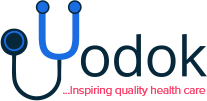Angina (Chest Pain)
November 28th, 2020 by yodok in Angina, cardiovascular disease, Chest pain
Angina is chest pain that you have when the blood flow to the heart muscle is reduced.
The reduced blood flow to the heart muscles is because the arteries (the tubes that supply blood) to the heart become narrow by deposits of fatty materials on its wall (atherosclerosis).
This process happens faster and more severe in the arteries if you suffer from high blood pressure as well. Also. things like an unhealthy diet full of fatty food, lack of exercise, smoking, increasing age and a family history of heart problem could increase the chances of the arteries to the heart been narrowed.
It is important to know that it is a warning sign that you have a high chance of having a heart attack and therefore you must see a doctor the first time you have chest pains.
Heart attack ( myocardial infarction) happens when there is a complete blockage of the major artery (the tube that supplies blood) to the heart. It could result in serious damage to the heart or cardiac arrest (the heart stops instantly).
But angina may not be life-threatening when you get the right treatment. And with changes in your lifestyle, angina could be controlled which would reduce the chance of a more serious problem in the future.
What do you feel when you have angina?
It is chest pain.
The chest feels tight like someone had tightened a belt around it. Some people describe it as someone sitting on their chest. The chest could also feel dull and heavy. The pain may go down your left arm, up to the neck or jaw or to the back.
It is chest pain that is caused by physical exercise, even walking upstairs or stressed, and stops after a few minutes of rest.
Sometimes you can also be out of breath, feel sick or dizzy.
There are two types of angina:
The chest pain starts when you do any form of exercise or stressed and stops within a few minutes when you rest (stable angina)
The other type is unpredictable, it could happen any time, even at rest. It is more serious, (unstable angina). You must see the doctor immediately.
There are tablets that can treat the chest pains when they happen, prevent further attacks, or even reduce the chance of heart attack.
If tablets do not help, a small procedure could be performed to place a device (stent) in the artery to increase blood flow to the heart.
Some patients may need other operations.
Life with Angina (chest pain)
If the Angina is the stable type and well-controlled, you can live a mostly normal life with it, if you make changes to your lifestyle. It would also help reduce the chance of a heart attack. The things you can do are:
- Eat a healthy diet
- Cut down on alcohol or stop.
- Stop smoking
- If you are overweight, you lose weight.
- Regular gentle exercises
A heart attack is preventable. But it could also run in the family. Once you are 40 years of age, take precautions and start checking yourself. Have regular checks with your doctor!

Leave a Reply